Frequently Asked Questions About Dry Eye
Are you struggling to navigate Dry Eye? Our team of experts are here for you.
Despite how many people it affects, there is little awareness about Dry Eye Syndrome, which can also be called Dry Eye Disease. This results in lots of frequently asked questions about the symptoms, causes and treatments of Dry Eye.
In this blog, our Dry Eye experts answer the most frequently searched questions about Dry Eye, with the aim of helping people who are unaware of the condition, and those who are already diagnosed with chronic Dry Eye Disease.
Frequently asked questions:
- What is Dry Eye?
- What are the symptoms of Dry Eye?
- What causes Dry Eye?
- Can Dry Eye cause blurry vision?
- Can dry eyes cause headaches?
- Can dry eyes cause blindness?
- What does Dry Eye feel like?
- Can you cure Dry Eye?
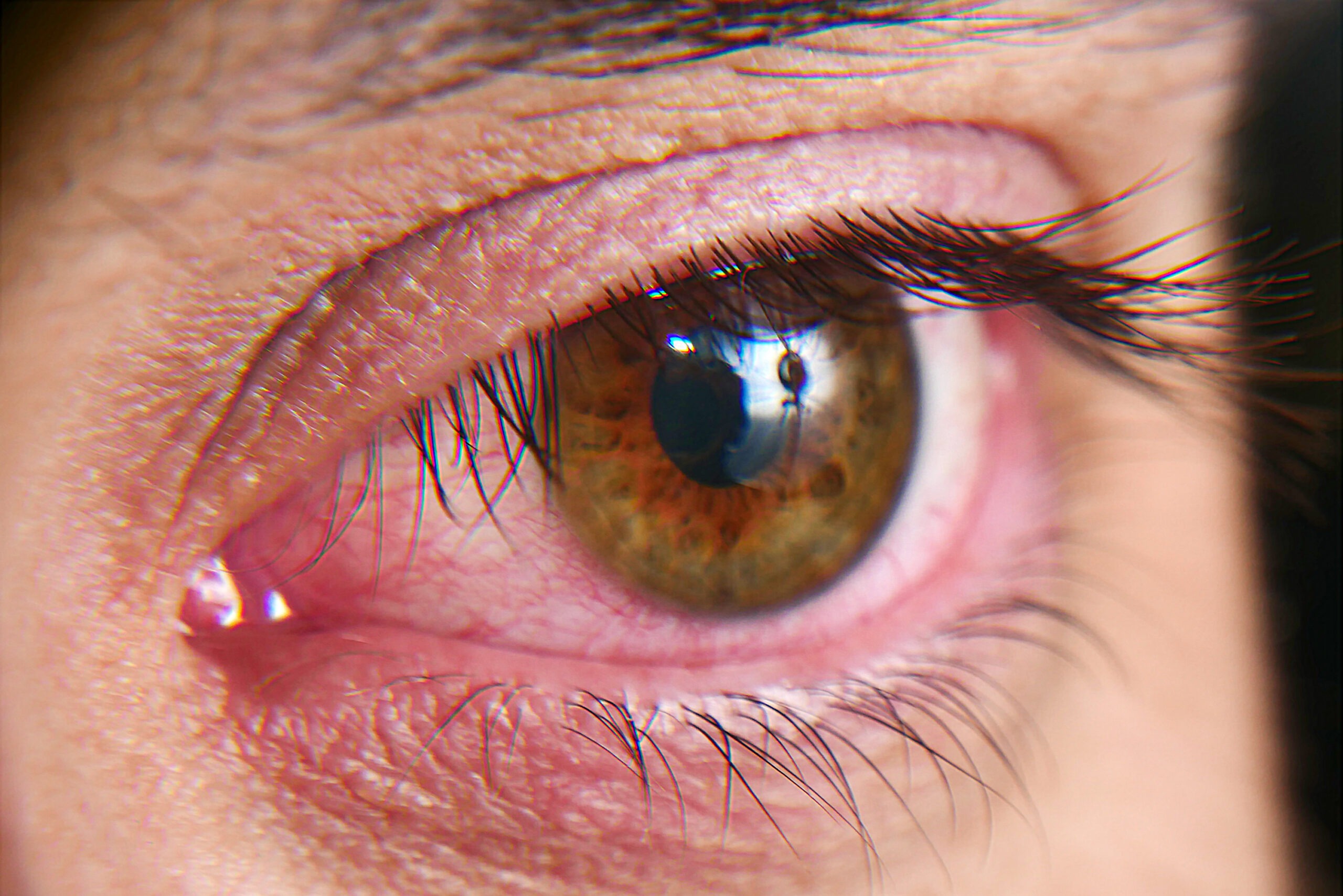
What is Dry Eye?
Dry Eye Syndrome is a common eye condition that causes the surface of the eye to become dry and irritated. It affects one in four people in the UK and can be caused by a number of factors.[1]
There are two main types of Dry Eye:
Evaporative Dry Eye
This is the most common form of Dry Eye Syndrome, accounting for 85% of cases. This is caused by a problem with the lipid layer of tear film, making your tears dry up too quickly. This condition is linked to blepharitis, which is a condition usually caused by poor eyelid hygiene, with bacteria feeding on debris in the eyes and eyelids.[2][3] Learn more about this here: Blepharitis and Dry Eye
Aqueous Tear Deficient Dry Eye
This is when the lacrimal glands in your eyes don’t make enough tears to keep your eyes moist. Aqueous Tear Deficient Dry Eye accounts for only 10% of all Dry Eye disease cases.[3] This condition can be related to Sjögren’s syndrome, which is an autoimmune condition that affects your body’s ability to produce fluids.[4] You can find out more about this condition here: Dry Eye and Sjögren’s Syndrome

What are the symptoms of Dry Eye?
Dry Eye affects everyone differently, but the most commonly experienced symptoms of Dry Eye include:
- Itchy eyes
- Sore eyes
- Gritty eyes
- Red eyes
- Blurry vision
- Sensitivity to light
- Eyes are more watery than normal
If you have any of these symptoms you might be suffering from Dry Eye Syndrome.[5] However, they could be signs of another condition, so it is also important to consult your GP before seeking any treatment. We would also recommend visiting this page: Dry Eyes Treatment and Prevention

What causes Dry Eye?
Are you asking yourself ‘what causes dry eyes all of a sudden?’ There are many different causes of Dry Eye, and factors that can make a person more likely to experience the condition. As mentioned previously, the main trigger of Dry Eye Syndrome is a lack of sufficient lubricating tears – meaning the surface of the eye becomes dry and irritated.[1] Tears can be inadequate or unstable for many reasons, including:

1. Menopause
Did you know around 61% of perimenopausal and menopausal women are affected by Dry Eye Syndrome?[6] Women over the age of 50 are more likely to experience Dry Eye because of menopause. This is because of women’s decreasing androgen sex hormones, which can affect tear production.[7] For more information, click here: 5 Things You Need to Know About Menopause & Dry Eye

2. Computer Vision Syndrome
Computer Vision Syndrome is a condition that can occur if you spend long periods looking at a screen. This can cause problems like blurred vision, headaches and Dry Eye.[8] Find out more about this here: What is Computer Vision Syndrome?

3. Smoking and alcohol
Smoking or drinking alcohol are two huge causes of dry eye syndrome. This is because cigarette smoke can break down the tears on the eye’s surface and alcohol dehydrates the eyes, making it difficult for the body to produce enough tears. [9][10] Both of these factors can lead to dry eyes and blurry vision. Find out more here: Is Drinking Alcohol Bad for Your Eyes?
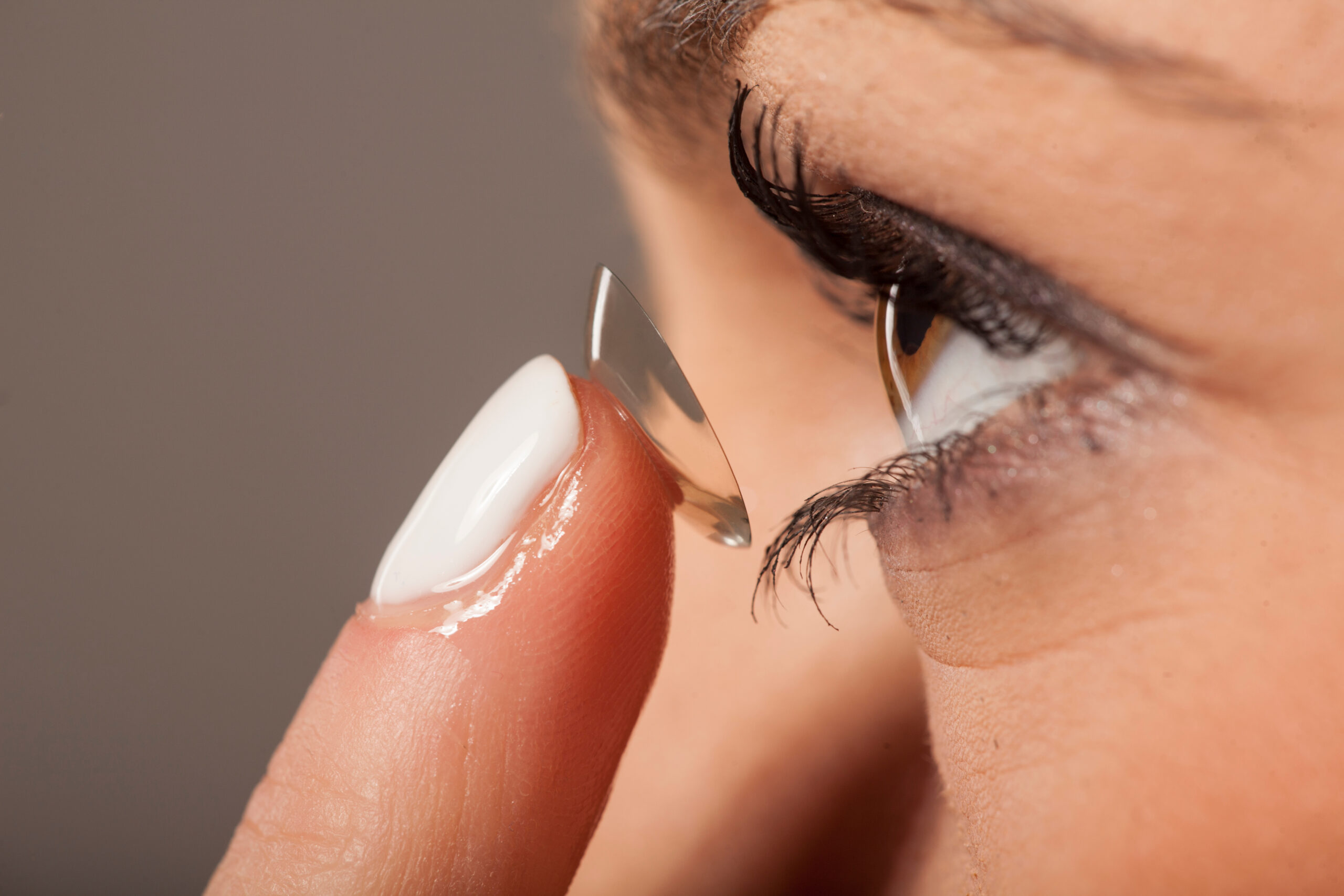
4. Contact lenses
Contact lenses are linked to Dry Eye because they limit oxygen flow into the eye, and oxygen is needed to develop natural tears.[11] Many people need contact lenses, so this cause is not always avoidable. Visit this page for our expert tips and advice: How to Manage Dry Eye If You Wear Contact Lenses
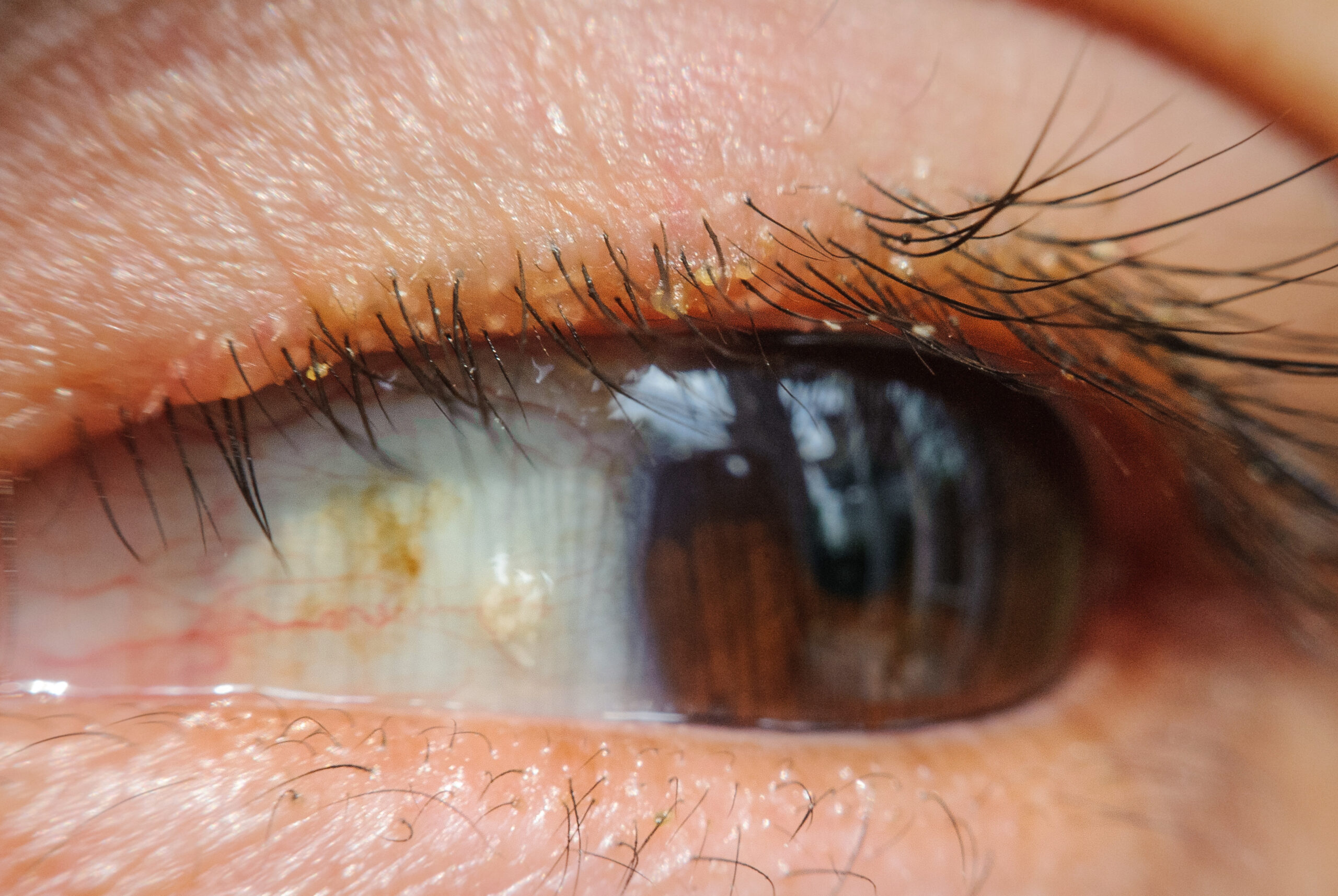
5. Health conditions
There are certain health conditions that can cause dry eyes, like blepharitis, Sjögren’s syndrome and rheumatoid arthritis.[12] Each of these can affect your dry eyes in different ways, for a variety of reasons. To find out more, click here: 6 Conditions That Cause Dry Eye
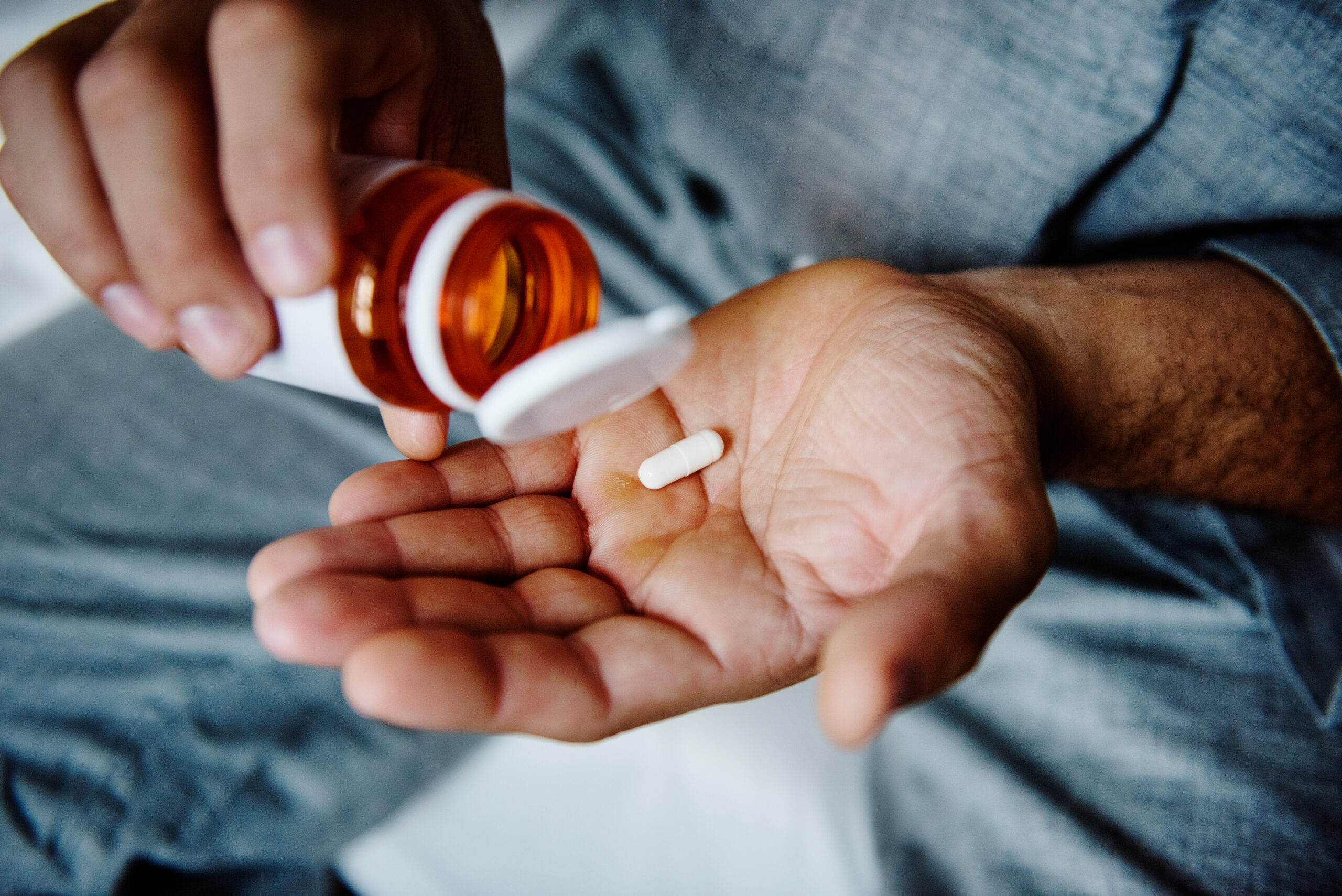
6. Medications
Blood pressure tablets and some antidepressants can be linked to Dry Eye, which can be a side effect from treatment.[5] Surgery for conditions, like cataract removal, can also cause this.[13] Learn more: Why Do I Have Dry Eyes After Cataract Surgery?

7. Environment
Air conditioning and heating, as well as windy, cold, dry and dusty environments, can cause Dry Eye.[5] Although some of these factors can be difficult to control, it is very important to be aware of them. Read this blog to find out more: Can the Environment Cause Dry Eyes?

8. Eating habits
The food we consume can affect how our bodies feel and function and our eyes are no exception to this. If you eat healthily, this can help you to manage symptoms and even decrease the severity of your Dry Eye.[14] Click here for more information: Best Foods to Eat If You Have Dry Eye

Can Dry Eye cause blurry vision?
Blurry vision is a symptom associated with Dry Eye Syndrome. Mostly blurry vision problems can be helped by using eye drops and other effective dry eye treatments, but they can also be related to other conditions like lupus and rheumatoid arthritis.[15] If you experience blurry vision and dry eyes, visit a GP before seeking treatment. To learn more about this, click here: Can Dry Eyes Cause Blurry Vision?

Can dry eyes cause headaches?
As a result of the blurry vision symptom of dry eyes, headaches can occur.[16] An article published in the National Library of Medicine found that dry eyes can cause differences in the length, symptoms, and severity of headaches.[17]
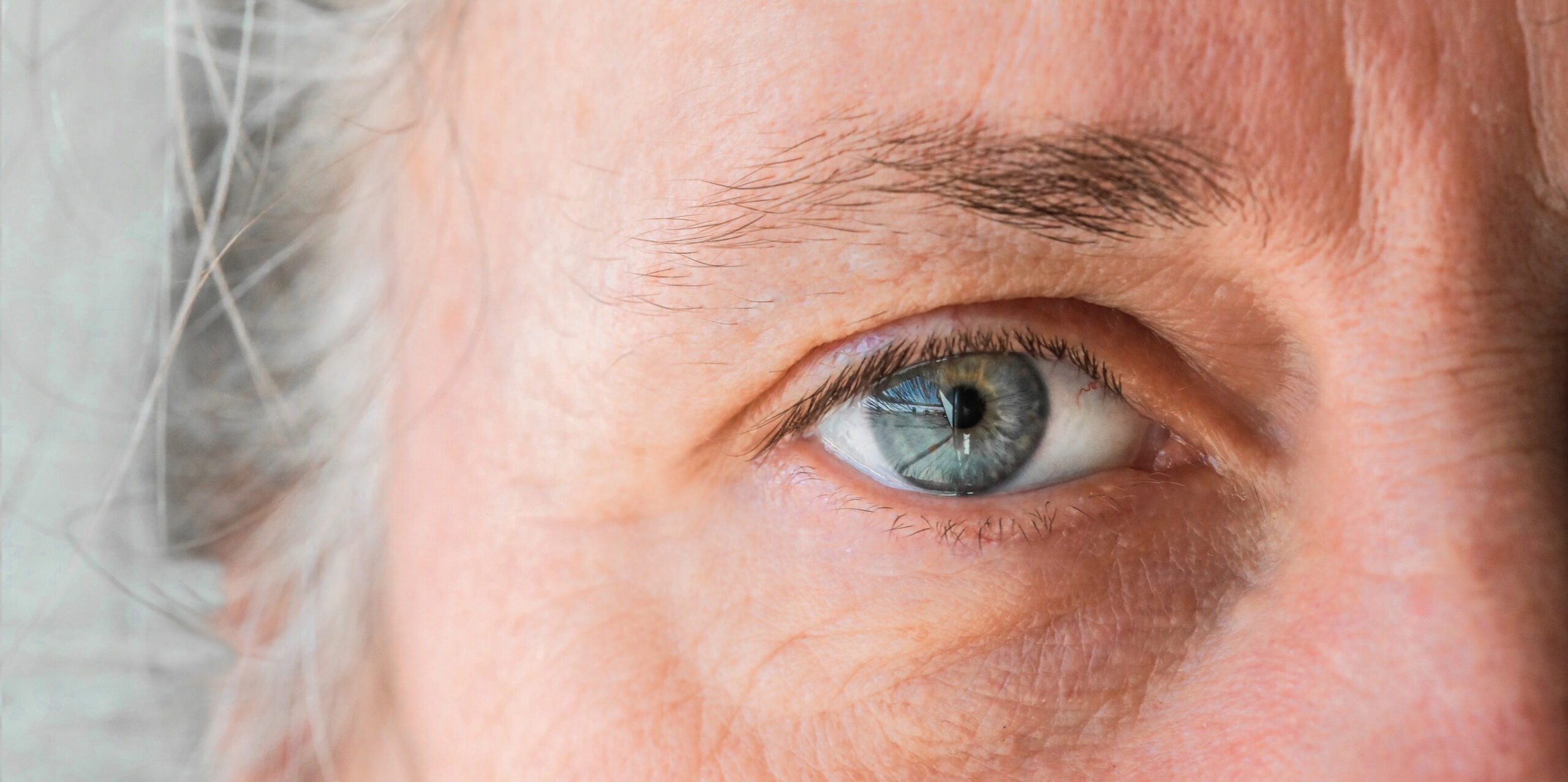
Can dry eyes cause blindness?
This can happen, but it is extremely rare. Blindness from dry eyes can occur when your eye’s cornea is damaged, as scarring can lead to impaired vision. If you start with dry eyes, it is important to see a medical professional as soon as possible to prevent blindness.[18]

What does Dry Eye feel like?
Dry Eye has many different possible symptoms, so it can feel different for everyone. Many people with Dry Eye report feeling like there is something in their eye, or experiencing a gritty sensation.[19]
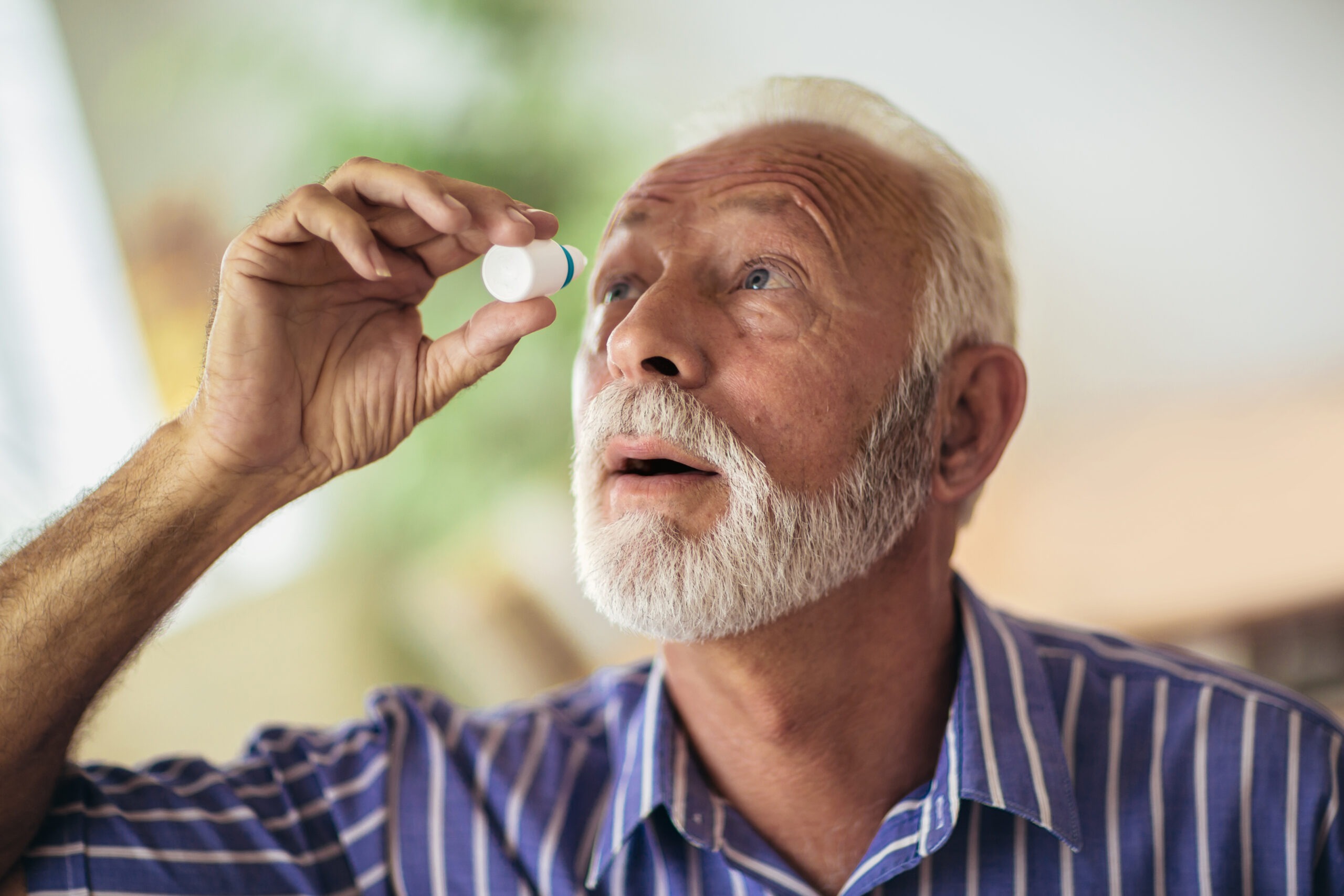
Can you cure Dry Eye?
Depending on the severity of the Dry Eye, it might cease to be a problem with effective treatment, or might recur throughout someone’s life. There is no current cure for chronic Dry Eye, but there are many treatment options and lifestyle changes that can be made to ease symptoms and maintain a great quality of life.[20]
Our team of experts have handpicked the best Dry Eye treatments, and launched them on our new website. From eye gels to eye drops, you’re sure to find a soothing solution. Visit our new online shop today: Visufarma Shop
In most cases, the best way to treat dry eyes, Also known as dry eye syndrome, is to use eye gel or eye drops.
VisuXL Gel® is a preservative-free smart gel lubricant for dry eye syndrome. It provides comfort in a bottle with it’s long-lasting lubrication properties giving 12-hour dosing with just one drop and is suitable for both day and night use.
VisuXL® is a preservative-free eye drop lubricant for dry eye syndrome. Due to its unique ingredients, VisuXL® will help you recover from eye surgery, an injury or persistent damaging dry eye.
VisuEvo® is a preservative-free eye drop that prevents excessive evaporation of the tear film. Its unique formula contains omega-3 essential fatty acids, Vitamins A and D and ultra-filtered phospholipids that facilitate tear film presentation and control evaporation.
All three products are contact lens-friendly and can be used for 180 days after opening.
Shop now
References
- Association of Optometrists, ‘Dry eye syndrome’. Accessed August 2023.
- Lovering, C. ‘How Are Blepharitis and Dry Eye Syndrome Connected?’, Healthline, 26/10/2022. Accessed August 2023.
- Findlay Q, Reid K. ‘Dry eye disease: when to treat and when to refer’, Aust Prescr. 2018 Oct;41(5):160-163. Epub 1/10/2018. Accessed August 2023.
- Jewell, T. ‘What is Aqueous-Deficient Dry Eye?’, Healthline, 18/10/2022. Accessed August 2023.
- NHS, ‘Dry eyes’, 06/12/2021. Accessed August 2023.
- The Dry Eye Center Of NY & NJ, ‘What’s the Link Between Dry Eye and Menopause?’, 08/04/2021. Accessed August 2023.
- O’Keefe Osborn, C. ‘Menopause and Dry Eyes: What’s the Link?’, Healthline, 02/04/2020. Accessed August 2023.
- Nunez, K. ‘7 Ways to Ease Computer Vision Syndrome’, Healthline, 04/03/2021. Accessed August 2023.
- Morgan Griffin, R. ‘Smoking and Dry Eye’, WebMD, 30/05/2023. Accessed August 2023.
- You, Young-Sheng, Qu, Nai-Bin, Yu, Xiao-Ning, ‘Alcohol consumption and dry eye syndrome: a Meta-analysis’, International Journal of Ophthalmology, 2016; 9(10): 1487–1492. Accessed December 2021.
- Specsavers, ‘Your guide to wearing contact lenses for dry eyes’. Accessed August 2023.
- American Academy of Ophthalmology, ‘What Is Dry Eye? Symptoms, Causes and Treatment’. Accessed August 2023.
- Nunez, K. ‘Is It Normal to Have Dry Eyes After Cataract Surgery?’, Healthline, 20/10/2021. Accessed August 2023.
- Hornick, L. Lensky Sipes, K. ‘A Dietary Approach to Dry Eye Disease Management’, Modern Optometry, 03/2021. Accessed August 2023.
- Watson, K. ‘What Causes Dry Eyes and Blurry Vision?’, Healthline, 21/08/2020. Accessed August 2023.
- Total Vision, ‘Can Dry Eye Cause Headaches?’, 15/12/2022. Accessed August 2023.
- Baksh BS, Garcia JC, Galor A. ‘Exploring the Link Between Dry Eye and Migraine: From Eye to Brain’, Eye Brain, 03/2021, 4;13:41-57. Accessed August 2023.
- Eye Clinic London, ‘Can Dry Eye Cause Blindness?’. Accessed August 2023.
- WebMD, ‘What Causes Dry Eyes?’, 12/05/2022. Accessed August 2023.
- Daniels, L. ‘Can you permanently cure dry eyes?’, Medical News Today, 09/02/2023. Accessed August 2023.




